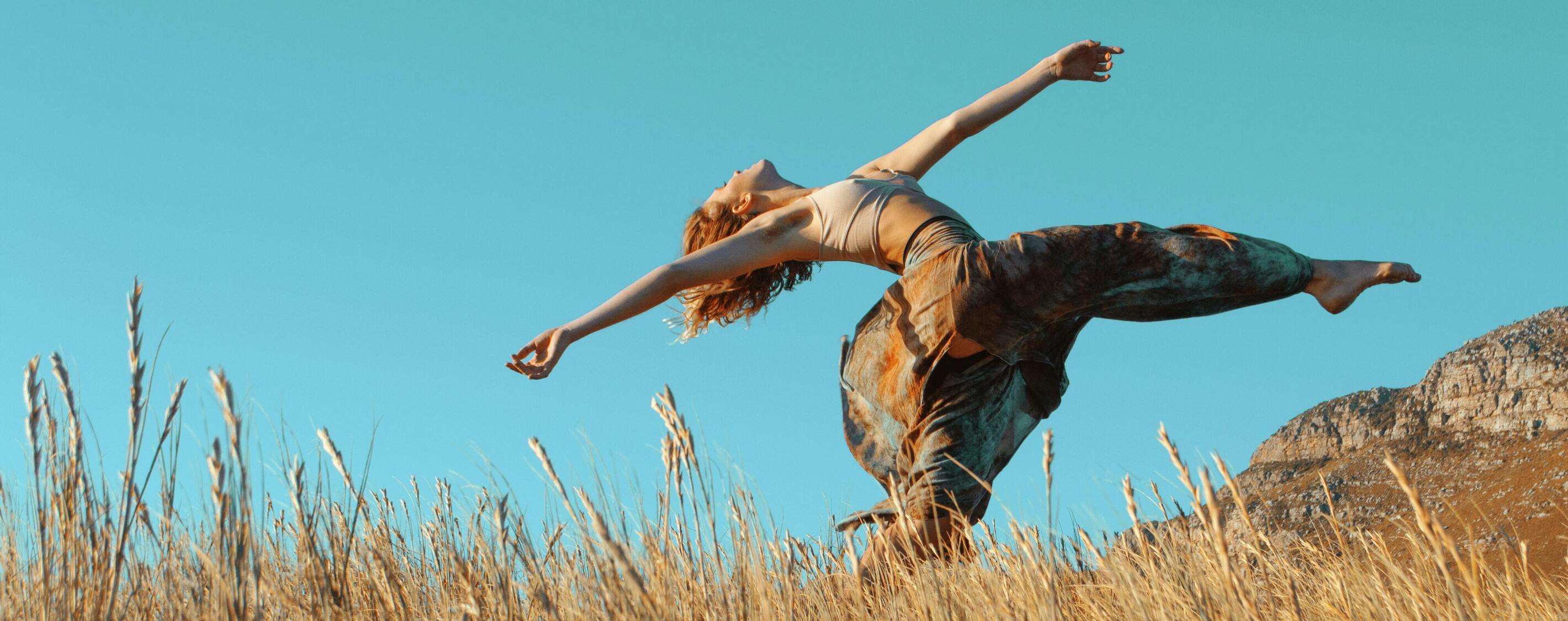"In the beginner's mind there are many possibilities, but in the expert's there are few." -Shunryu Suzuki
If it’s true what they say, that no one likes a know-it-all, what happens when the know-it-all lives in your head? Funny enough, when people think they know all there is to know on a subject, they prove to be more closed-minded. And daresay, less enjoyable to be around.
The question then becomes: how can you embrace more of a beginner’s mindset, which reflects humility with respect to life experiences and the world?
The Zen Buddhist term, Shoshin (初心), means "beginner's mind", and holds that only when you are a true beginner, can you really learn anything. As usual, yoga gives you a perfect opportunity to practice your life skills on the mat, helping you to have greater access to wiser choices off the mat.
Here are eight ways to practice developing your beginner’s mind.
When considering anything, try taking on the viewpoint of “Yes, No, Maybe,” rather than choosing just one perspective.
Connecting to the foundation in your practice is a way of not only keeping yourself safe, but is a way to open up to the experience of the moment you’re in with a humble attitude. It’s saying, I’m going to do my part to set myself up for success, and I’m not going to get lazy or assume that the outcome will go a certain way. I will then open myself up to everything that could possibly arise from the way I have laid out this pose.
Starting your yoga practice in Child’s Pose (Balasana) can help to not only nurture that spirit of wonder, but to humble you as you bow to your highest energy and light. Similarly, you can end your practice with Happy Baby Pose (Ananda Balasana) before moving into Corpse Pose (Savasana). Let it be your intention to feed the childlike curiosity and awe of not knowing all the answers.
Rather than trying to figure these things out, you practice being at peace with the state of not knowing. In this way, you learn to relax into the moments when faced with a challenge or a conundrum and have no idea what will happen. In this meditation, faith in the unknown brings about inner peace.
For example, a person being five minutes late to your lunch meeting may just mean that that person is running behind, not that they devalue you and your time so much that you feel disrespected and resentful. It is far easier sometimes to jump to conclusions than to assume everyone’s innocence—at least at first. But with time, it gets easier to treat each person you meet with openness and without expectation.
With a beginner’s mind approach to your practice, you can experience each pose as if you were experiencing it for the first time. And better yet, you’d be able to be so available to the full range of sensations, that you’d find delight even in the challenging moments simply because you’re aware of them.
Instead, resolve to use your most familiar poses or Salutations as a reminder to open your awareness and drop in to your body. Each time you come to Downward-Facing Dog, for example, resist the urge to tune out and go on autopilot. Instead, tune in. Notice how this Down Dog feels in this particular moment in time.
The next step (or, Beginner’s Mind 2.0) would be to ask yourself, What can I learn in this pose/ situation? In this way, nothing becomes rote, boring, or useless.
And at every turn, be curious. Approaching the world with a sense of authentic curiosity is one of the keystones of openness and beginner’s mind. Even if you feel out of practice and don’t know where to start, it’s still inside you.
As author and film producer Brian Grazer said in his book, A Curious Mind: The Secret to a Bigger Life, “You’re born curious, and no matter how much battering your curiosity has taken, it’s standing by, ready to be awakened.” So awaken to the joy that not having all the answers can bring. Because, hey, you never know …
If it’s true what they say, that no one likes a know-it-all, what happens when the know-it-all lives in your head? Funny enough, when people think they know all there is to know on a subject, they prove to be more closed-minded. And daresay, less enjoyable to be around.
The question then becomes: how can you embrace more of a beginner’s mindset, which reflects humility with respect to life experiences and the world?
The Zen Buddhist term, Shoshin (初心), means "beginner's mind", and holds that only when you are a true beginner, can you really learn anything. As usual, yoga gives you a perfect opportunity to practice your life skills on the mat, helping you to have greater access to wiser choices off the mat.
Here are eight ways to practice developing your beginner’s mind.
1. Yes, No, Maybe
The beginner’s mindset refers to maintaining the open attitude of a beginner, no matter how advanced your knowledge becomes on a topic. A wise place to start would be to embrace more openness with regard to your judgments. And really, everything is a judgment—from your opinion about someone else’s beliefs, to the system of yoga or religion you follow, to the “facts” that you consider absolutely unwavering. After all, at a certain time in history, it was a fact that the world was flat!When considering anything, try taking on the viewpoint of “Yes, No, Maybe,” rather than choosing just one perspective.
- Should a person eat meat? Yes, no, maybe.
- Is your method of disciplining your children the best choice? Yes, no, maybe.
- Should you really wait 30 minutes after a meal before swimming? Yes, no, maybe.
2. Pay Attention to the Foundation
When you have a structure built on a strong and solid foundation, everything builds up and aligns far more easily than when built on shoddy ground. The same is true both on and off the mat. While in your yoga poses, pay attention to the parts of you that are touching the earth, and practice really rooting yourself evenly through those areas of pressure. When you let your body move faster than your attention to it, imbalance and injury occurs. It’s almost like you’re saying I know what I’m doing, I don’t need to really pay attention, I’ve done this a million times before.Connecting to the foundation in your practice is a way of not only keeping yourself safe, but is a way to open up to the experience of the moment you’re in with a humble attitude. It’s saying, I’m going to do my part to set myself up for success, and I’m not going to get lazy or assume that the outcome will go a certain way. I will then open myself up to everything that could possibly arise from the way I have laid out this pose.
3. Emulate the Wonder of Children
The great naturalist, Rachel Carson, said in her book, The Sense of Wonder, “A child’s world is fresh and new and beautiful, full of wonder and excitement. It is our misfortune that for most of us that clear-eyed vision, that true instinct for what is beautiful and awe-inspiring, is dimmed and even lost before we reach adulthood. If I had influence with the good fairy who is supposed to preside over all children, I should ask that her gift to each child in the world be a sense of wonder so indestructible that it would last throughout life.”Starting your yoga practice in Child’s Pose (Balasana) can help to not only nurture that spirit of wonder, but to humble you as you bow to your highest energy and light. Similarly, you can end your practice with Happy Baby Pose (Ananda Balasana) before moving into Corpse Pose (Savasana). Let it be your intention to feed the childlike curiosity and awe of not knowing all the answers.
4. Practice the Don’t Know Mind
Author Jack Kornfield shares a powerful meditation to embrace what he calls “the Don’t Know Mind.” It’s a simple contemplation that asks you to consider all the things within and around you that you don’t fully understand—like how the earth spins through space or how people are born and are dying every day.Rather than trying to figure these things out, you practice being at peace with the state of not knowing. In this way, you learn to relax into the moments when faced with a challenge or a conundrum and have no idea what will happen. In this meditation, faith in the unknown brings about inner peace.
5. Beware of Storytelling
Beginner’s Mind asks you to see things as they actually are (vidya), as opposed to the illusions with which you may so often identify. It is your past experiences, assumptions, and judgments that send you into a cycle of storytelling and unnecessary suffering.For example, a person being five minutes late to your lunch meeting may just mean that that person is running behind, not that they devalue you and your time so much that you feel disrespected and resentful. It is far easier sometimes to jump to conclusions than to assume everyone’s innocence—at least at first. But with time, it gets easier to treat each person you meet with openness and without expectation.
6. When Practicing, Notice How You Experience Expectations
In yoga class, when your yoga teacher says to come into Warrior II, do you expect for it to make your front thigh tired? Do you expect to hate it? What if today Warrior II was extremely empowering for you? Would you be able to notice it?With a beginner’s mind approach to your practice, you can experience each pose as if you were experiencing it for the first time. And better yet, you’d be able to be so available to the full range of sensations, that you’d find delight even in the challenging moments simply because you’re aware of them.
7. Use the Familiar Poses as Your Anchor
For many people, yoga practice is like brushing their teeth: you know that it’s important to do every day, but often just go through the motions while planning some other upcoming event.Instead, resolve to use your most familiar poses or Salutations as a reminder to open your awareness and drop in to your body. Each time you come to Downward-Facing Dog, for example, resist the urge to tune out and go on autopilot. Instead, tune in. Notice how this Down Dog feels in this particular moment in time.
The next step (or, Beginner’s Mind 2.0) would be to ask yourself, What can I learn in this pose/ situation? In this way, nothing becomes rote, boring, or useless.
8. Treat Every Day like It’s Your Birthday
You know how you wake up on your birthday and every experience is heightened and special? What would happen if you treated every day like that? Each meal became really magical because it was exactly what you were choosing to eat on your special day. You walked down the street with light in your heart and pep in your step because you knew that this day was an auspicious one in your life. You looked around and saw everything as a sign or a good omen that this would be your best year yet. When you meet the world with your arms (and mind) wide open, it is likely to surprise you.And at every turn, be curious. Approaching the world with a sense of authentic curiosity is one of the keystones of openness and beginner’s mind. Even if you feel out of practice and don’t know where to start, it’s still inside you.
As author and film producer Brian Grazer said in his book, A Curious Mind: The Secret to a Bigger Life, “You’re born curious, and no matter how much battering your curiosity has taken, it’s standing by, ready to be awakened.” So awaken to the joy that not having all the answers can bring. Because, hey, you never know …




